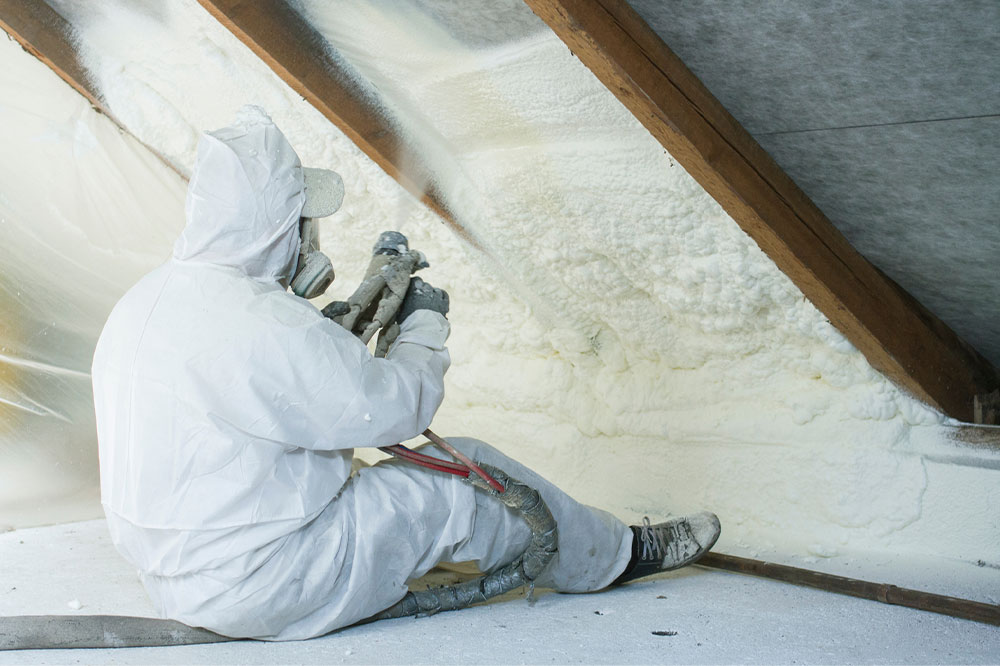Spray Foam Insulation – Benefits, Cost, and Tips to Find the Top Companies
Do you want to insulate your home and reduce energy bills? Consider spray foam insulation, also called spray polyurethane foam (SPF), which effectively keeps heat in. It is a suitable alternative to traditional insulation and can be used on lofts, walls, and flooring. But if you’re wondering whether it is better than other types of insulation options, there are a bunch of factors that you ought to keep in mind.

Spray vs. traditional insulation
Spray foam is one of the most advanced insulation options in the market today compared to its traditional counterparts. It is more effective than other options, such as organic and fiberglass insulation. Therefore, several insulation contractors usually recommend spray foam as the best option over the other choices.
The benefits of spray foam insulation
When choosing spray foam insulation, there are several benefits you can expect from your investment. A few pros of going with this option include:
Using spray foam insulation could help cut down energy bills by a significant margin. Research indicates that it could reduce the loss of heat by about 50%, which would otherwise escape through walls, roofs, and other air leakage points.
The spray foam is flexible, which allows it to insulate areas that are tougher or impossible to cover with other materials like fiberglass.
The formula is designed to last in a home for about 80 years.
The spray foam composition helps keep pests and rodents out of the home.
The insulation material can also naturally restrict exterior noise, which could help reduce sound levels inside the home.
The formula may help keep allergens and other airborne contaminants out of the home.
The cost of spray foam insulation
The cost of spray foam could depend on the type of insulation you may or may not have in your home. This type of insulation could cost two or three times more than other options like fiberglass insulation. However, when you opt for spray foam insulation, you must consider its long-term benefits, which include reducing bills that could stem from your heating system. The cost of the insulation will also differ based on the type of spray foam that you use. The typical cost to install spray foam insulation is between $1,200 and $4,000, with a national average cost of $2,500. It is also important to account for installation equipment, the removal of older insulation, and other unforeseen expenses that may arise during the process. Furthermore, you should also bear in mind the labor costs associated with installing insulation. Based on the size of the insulation area, this cost could range from $50 to $100 or higher per hour.
DIY spray foam kits
You could opt for DIY spray foam insulation kits to save on costs. The kit costs between $300 and $350 and could yield about 200 board feet’ worth of spray foam. If you are carrying out a medium-sized project, such as insulating a wall junction, sealing the roof, or covering attic walls and basement sill plates, the DIY kit is a suitable option. If you want a more advanced insulation kit, you should opt for open-cell spray foam insulation kits. While they may cost about $700 or more, they could yield between 600 and 650 board feet’ worth of insulation. This makes open-cell kits ideal for larger projects, such as insulating the entire home.
Tips for choosing a spray foam insulation company
If you have the budget and have decided to hire a professional, you should look for a reliable contractor. However, if you look for them in your area or search for contractors online, you’re bound to come across a ton of professionals and companies that claim to be the best. Therefore, following these tips may help you make a more informed decision when selecting a contractor to insulate your home.
Get them to inspect the home
Before hiring an insulation contractor, check if they carry out a walk-through and inspection of the home. Professionals who assess the area of the project before drawing up a quotation are far more reliable than those who quote a round figure without even inspecting the space.
Ask for recommendations
One of the best ways to select a contractor for the project is to ask friends, family, and neighbors for recommendations. They could share their experiences if they’ve had similar work done in their homes. You could ask them about the contractor’s responsiveness to questions, their customer service skills, and if the professional adhered to timelines. You can also look online for reviews from users who have hired insulation experts for projects in the past.
Verify the contractor’s license and insurance
When choosing a contractor to install or replace your home’s insulation, it’s important to make sure they’re qualified. Start by checking their status with your state’s licensing board or agency to confirm that they’re fully licensed to do the job you require. You should also ask the contractor about their insurance proof, such as the carrier, certificate, and coverage details. This could come in handy in case there are damages or accidents during the project.
Get a written quotation
A written agreement from the contractor before the work begins may help ensure that there are no surprise costs once the work begins. The contract could contain elements, including the total fee, project timeline, scope of work, and itemized budget (labor, permits, fees, and materials). However, it is also important to note that there could always be additional unforeseen costs that may stem during the course of the job.